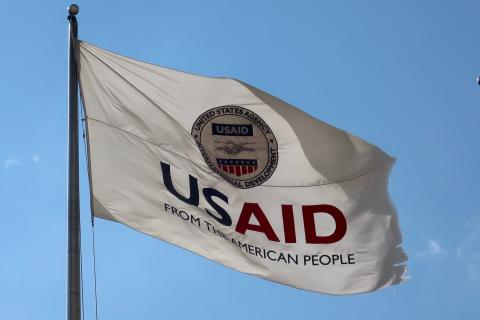
Oil, gas and mining projects often yield large amounts of public revenue and can have a material impact on host communities. Transparency on the terms governing these projects can help ensure that natural resources are managed fairly and in the interest of citizens.
The latest “Transparency Matters” webinar demonstrated widespread support for contract disclosure. Moderated by Lisa Sachs, Director of the Columbia Center on Sustainable Investment, the event explored the important role contract transparency can play to strengthen the management of vital public revenues.
Contract publication
All 55 countries that implement the EITI Standard will be required to publish new and amended extractive contracts from 1 January 2021 onwards. “This deadline represents a key milestone,” said Don Hubert, President of Resources for Development Consulting. “Contract transparency generates good governance – if people know the terms will be in the public domain, they will be more careful.”
Contract publication is especially urgent in the COVID-19 era. Faced with increasing economic pressures, governments are more likely to offer fiscal concessions in order to secure extractive investments. “Those concessions could have decade-long implications and need to be scrutinised,” said Hubert. “We don’t just want to know what amounts were paid; we want to know why they were paid. The only way you can answer those questions is to understand the terms of the contract.”
Thirty-seven EITI implementing countries already publish some or all contracts. Sierra Leone’s Minister of State, Hon. Francess Alghali, noted that legal reforms were key to ensure the country’s mining agreements were made public. Disclosures have since resulted in “a less confrontational attitude on the part of government and companies,” said Alghali.
For industry, contract disclosure can build trust and strengthen a company’s social license to operate. Mark van den Honert, Tax Manager, Global Policy at Shell International B.V., remarked that the company’s tax disclosures have helped to demonstrate how much revenue Shell has contributed to host countries. “Shell alone paid more than USD 13 billion in corporate income tax and royalties last year,” said van den Honert. The company is party to some contracts that are already being disclosed in a number of EITI implementing countries.
Contract use
Hubert emphasised that contracts can be used to make sure public systems to operate effectively. “We work in countries where tax authorities, Supreme Audit Institutions and parliaments don’t have access to contracts,” said Hubert. “But government officials need to access contracts in order to do their jobs.”
In Sierra Leone, contract transparency is being used to enhance accountability and improve negotiations. For example, one mining contract is currently under investigation by the country’s Anti-Corruption Commission, as a result of its prior disclosure. Separately, Alghali also noted that a contract with SL Mining is undergoing government negotiations, specifically on terms related to resource mobilisation.
But for contract disclosure to be meaningful, there needs to safe space for scrutiny. Sierra Leone’s Right to Access Information Act enables citizens and advocacy groups to interrogate contracts without the fear of reprisals. “Once you have enabling legislation, it makes it legitimate for civil society to do their work,” said Alghali.
Informing debate and reform
In Mongolia, civil society has played a key role in campaigning for Community Development Agreements (CDAs), which are negotiated directly with local administrations to ensure that communities benefit from investment projects. Mongolia has subsequently seen 88 new CDAs between 2012 and 2019.
“By being able to access CDAs, Mongolian citizens can hold companies and local governments accountable,” said Tur-Od Lkhagvajav, National Coordinator for Publish What You Pay Mongolia, who stressed the importance of contract monitoring. Citizens can access contracts through Mongolia’s online portal, which is designed to accommodate diverse accessibility needs.
Through financial modelling, contracts can also be used to estimate future revenues generated by the sector. In Lebanon, this type of analysis has been an important tool to manage expectations around highly anticipated oil revenues. “It really helped us reposition the discussion on what these revenues mean,” said Diana El Kaissy, Executive Director of the Lebanon Oil and Gas Initiative (LOGI). “We debunked the myth that oil money will save Lebanon and helped policy makers focus on urgent reforms.”
The potential of extractive sector to contribute to future tax revenue may well depend on the contracts that are negotiated today and the level of transparency that is applied to the contracting process. Equally, many panellists emphasised the importance of publishing older contracts. “The most important contracts for next decade of domestic resource mobilisation are those that have already been signed,” said Hubert. Beyond requiring that contracts entered into or amended from 1 January 2021 be made public, the EITI Standard also encourages countries to publish contracts signed before this date.
With a strong convergence of views on the benefits of contract transparency, it now remains to put these requirements to practice and use contract information to inform public debate and policy decisions.
This webinar took place during the EITI’s Contract Transparency Week, a series of events highlighting the value of contract disclosure ahead of the deadline of 1 January 2021 for the publication of new and amended contracts in the EITI’s 55 implementing countries.



